Despite their similar-sounding names and related chemical structures, squalane and squalene have distinct characteristics, making one more favorable than the other in moisturizers.
Therefore, understanding the differences between these two compounds is essential for making informed decisions about skincare routines and product selection.
In this article, we will delve into the unique qualities of squalane and squalene, their benefits for the skin, and how to incorporate the right option into your skincare routine.
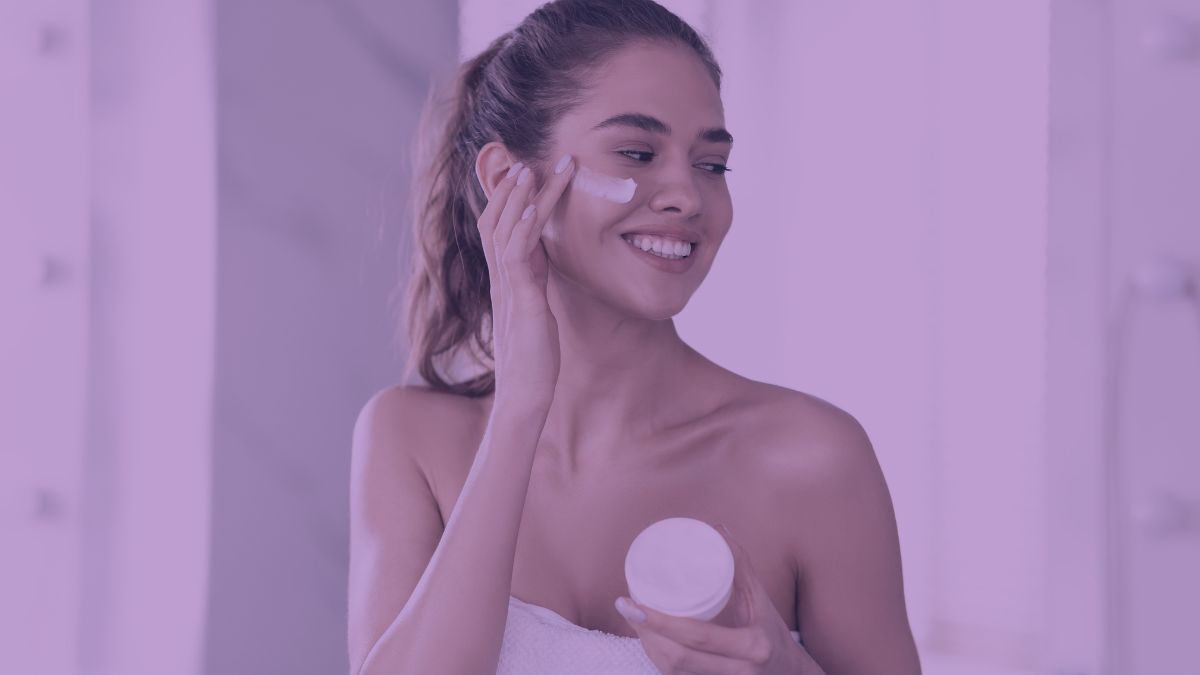
What is Squalene?
Squalene is a natural organic compound found in our skin’s sebum, or oil, and is also produced by plants such as olives and animals.
It is a type of lipid or fat molecule that helps lubricate and protect the skin from external pathogens.
Furthermore, squalene plays an essential role in maintaining our skin’s health and appearance by preventing transepidermal moisture loss and aiding in the production of ceramides, which helps maintain the skin’s barrier function.
However, squalene is not typically used in skincare products due to its instability and tendency to oxidize quickly, which can cause allergic reactions, sensitivities, and inflammatory skin conditions such as acne.
What is Squalane?
Squalane is essentially a byproduct of squalene through hydrogenation, a process that involves adding hydrogen atoms to squalene to make it more stable and less prone to oxidation.
Squalane is also the closest lab-made replica of our skin’s natural oil.
Since squalane is the more stable version of squalene and doesn’t oxidize as easily, it’s the type of lipid that’s used in skincare products, particularly in moisturizers, to help improve various skin concerns, including dryness, itchiness, inflammation, sun damage, and fine lines and wrinkles.
Skin Benefits of Squalane
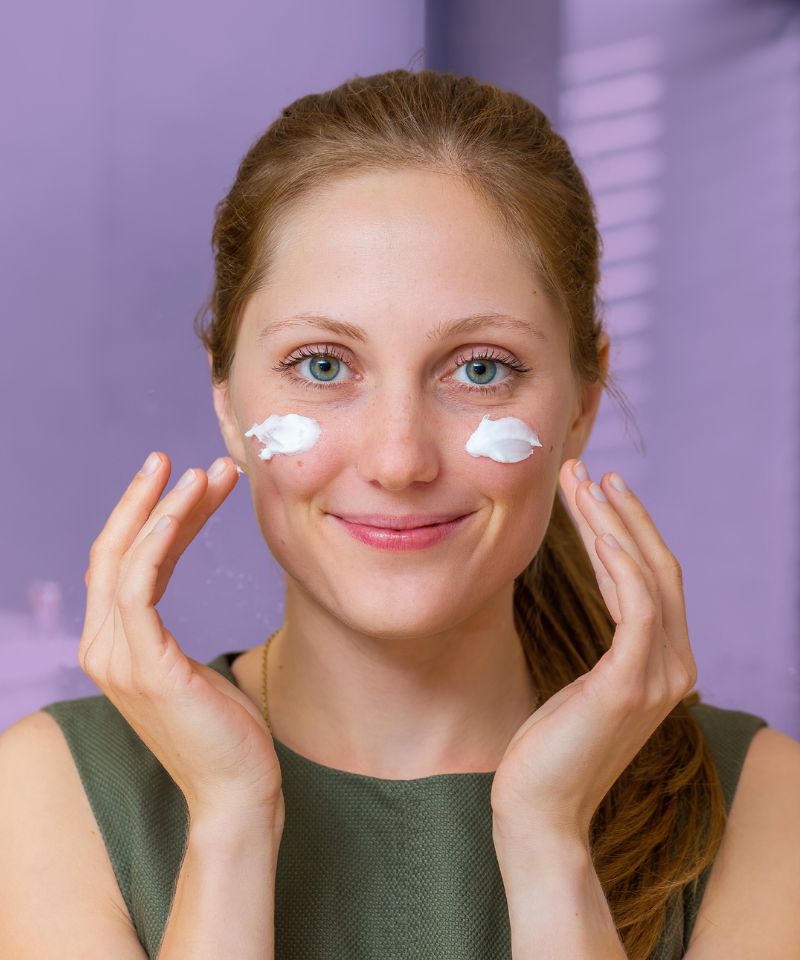
Deep Moisturization
Squalane is well-known for its ability to prevent trans-epidermal moisture loss.
Due to its similarities to our skin’s natural oil, squalane creates a lipid barrier on the skin’s surface to prevent moisture from the deeper layers of the skin from evaporating through its surface.
This makes it an ideal ingredient for those with dry, dehydrated, and flaky skin, especially during winter.
Furthermore, squalane helps regulate oil production and balance the skin’s moisture levels, making it suitable for all skin types.
Antioxidant Protection
Squalane is also a potent antioxidant that protects the skin against environmental stressors such as UV rays, pollution, and free radicals.
These external factors can accelerate signs of aging by damaging the skin’s cells and collagen fibers, leading to wrinkles, fine lines, and sagging skin.
Squalane works by neutralizing free radicals and preventing oxidative stress, helping to keep the skin looking youthful and healthy.
Anti-Inflammatory Properties
As mentioned earlier, squalane has anti-inflammatory properties that make it beneficial for those with inflammatory skin conditions such as eczema and rosacea.
By creating a layer of protection on the skin’s surface, squalane softens dry and inflamed areas and actively fights inflammation by promoting cellular regeneration.
Additionally, squalane’s antioxidant activity contributes to its anti-inflammatory effects.
Oxidative stress and inflammation are closely linked processes; therefore, by exerting antioxidant activity, squalane counteracts oxidative stress, thereby potentially reducing inflammatory responses.
This action can help soothe and calm the skin, reducing redness, irritation, and itchiness associated with these conditions.
Furthermore, squalane can also help heal wounds and improve the overall appearance of scars.
Refine Skin Tone and Texture
Regular use of squalane can also lead to smoother, softer, and even-toned skin.
Since it helps to retain moisture and improve skin elasticity, it can also help to reduce the appearance of fine lines and wrinkles.
Additionally, squalane also has a plumping effect on the skin, making it look more youthful and radiant.
The Side Effects of Squalane
Allergic Reactions: Although rare, some individuals might be allergic to squalane, which can lead to redness, itching, or rashes.
Acne: As a heavy lipid, squalane can cause clogged pores, leading to acne or milia, especially if overused or used alongside other comedogenic ingredients.
Oily Residue: Excessive application can leave the skin feeling greasy and shiny, which may be uncomfortable for those with oily skin.
Lipid Peroxidation: High concentrations of squalane can cause lipid peroxidation, which can damage the skin’s barrier function and potentially lead to irritation and inflammatory skin conditions.
Who is Squalane Best Suited For?
While squalane is suitable for all skin types, it’s best suited for those with dry and textured skin struggling to maintain hydration.
Squalane is also an excellent choice for mature skin, as it can help improve signs of aging, such as wrinkles and uneven skin tone caused by sun damage.
Finally, squalane is also suitable for those with sensitive and reactive skin due to its ability to reduce inflammation and provide an antioxidant effect to counteract cellular damage from free radicals.
Who Shouldn’t Use Squalane?
On the other hand, squalane may not be the most suitable ingredient for acne-prone skin as it can clog pores, which may exacerbate existing breakouts and trigger the formation of new pimples.
However, squalane can be helpful on a case-by-case basis for oily skin that’s not acne-prone.
Some individuals with oily skin may notice their skin becoming more balanced and moisturized rather than greasy and shiny, while others might find squalane too heavy and occlusive.
Therefore, while squalane is not necessarily harmful for oily skin, results will vary from person to person.
Additionally, squalane can sometimes irritate the skin, especially if the product being used has been kept in an unsanitary environment that has caused the ingredient to oxidize or expire.
6 Best Moisturizers With Squalane
E.l.f. – SuperHydrate Gel Moisturiser
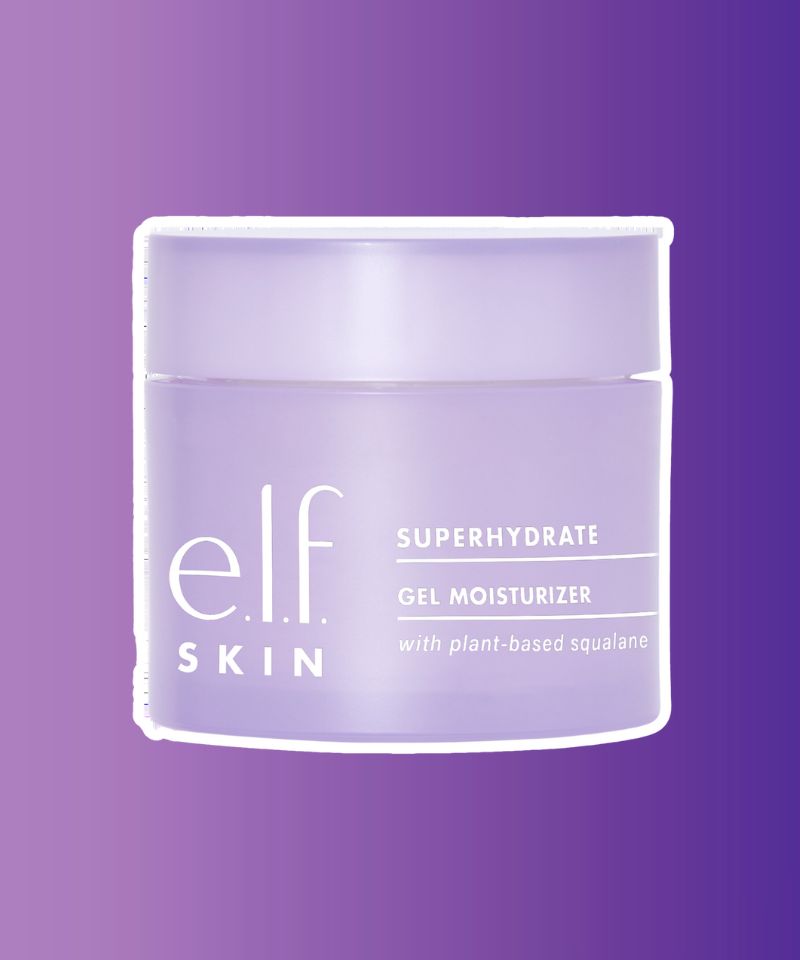
Best squalane moisturizer for oily skin.
The e.l.f. SuperHydrate Gel Moisturiser is specifically designed for oily skin and features a lightweight formula that includes squalane and niacinamide for its anti-acne benefits, soothing Centella Asiatica, and snow mushroom extract, a potent brightening antioxidant.
This lightweight moisturizer aims to balance the skin’s oil production while leaving a smooth and natural finish without feeling greasy.
Aprilskin – Artemisia Squalane Hydra Gel Cream
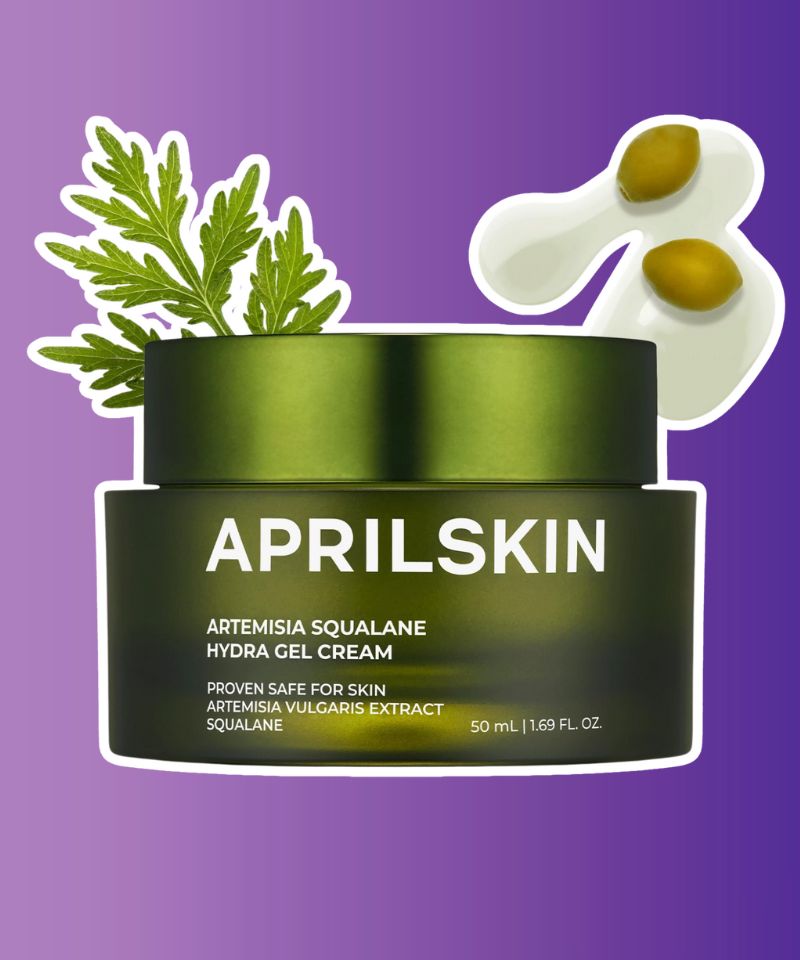
Best squalane moisturizer for combination and oily skin.
Aprilskin’s Artemisia Squalane Hydra Gel Cream is a lightweight, gel-like moisturizer loaded with skin-identical ingredients, including a 3% concentration of squalane, that promotes skin softness and barrier repair.
It also contains niacinamide, which regulates oil production, reduces acne and brightens the complexion.
Soothing components like allantoin and licorice extract work in tandem with ceramides and hyaluronic acid to enhance hydration and calm irritated skin.
DHC – Extra Nighttime Moisture
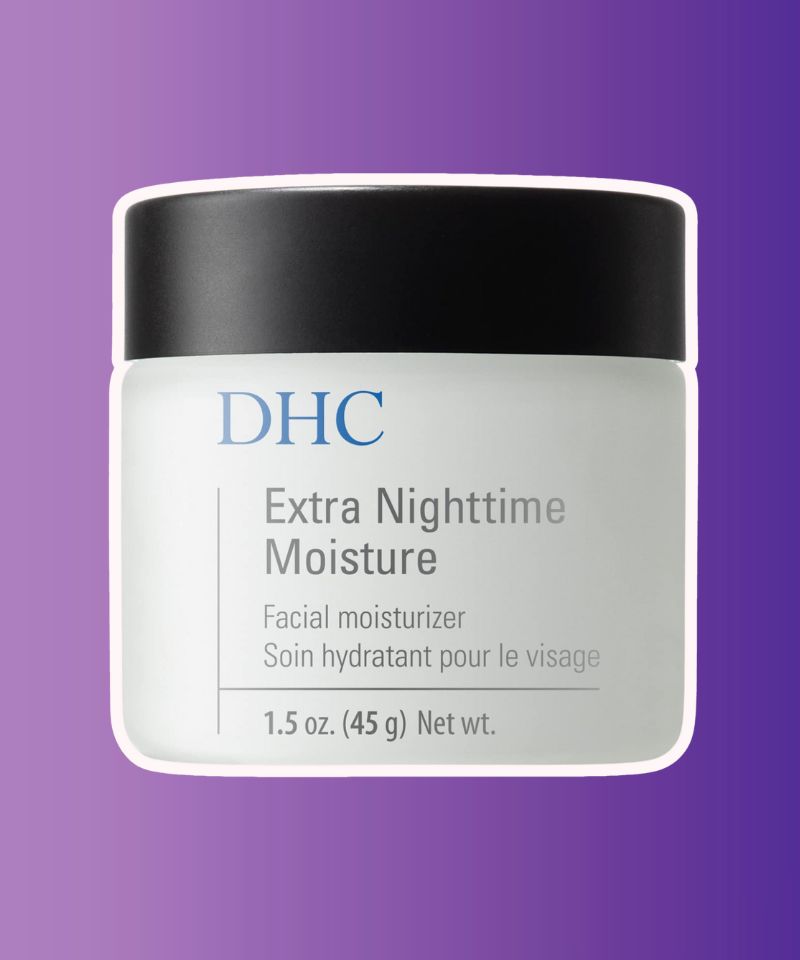
Best squalane moisturizer for dry skin.
The DHC Extra Nighttime Moisture is a heavy-duty moisturizer containing antioxidant-rich olive oil and vitamin E to protect the skin from environmental stressors, while hyaluronic acid and serine work synergistically to bolster the skin’s moisture levels overnight.
Additionally, the rich cream helps soothe irritated and parched skin with ingredients like licorice extract, leaving the complexion looking brighter, smoother, and refreshed by morning.
Biossance – Squalane + Omega Repair Cream
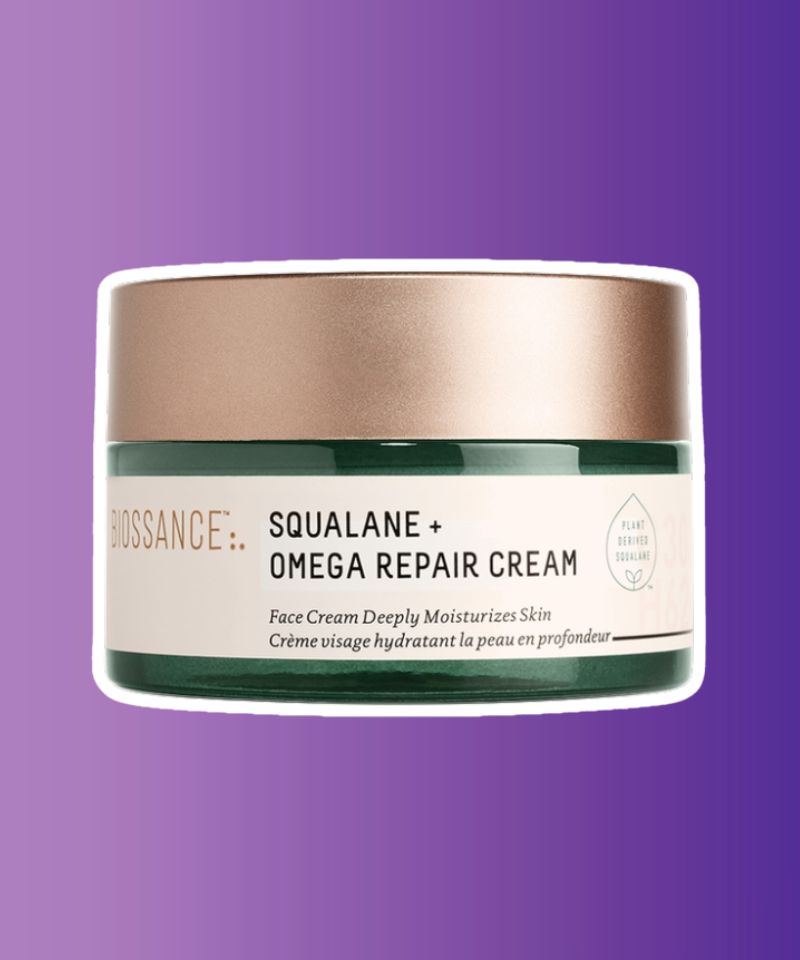
Best squalane moisturizer for dry skin.
Biossance Squalane + Omega Repair Cream stands out for its deeply nourishing formula that envelops the skin with its blend of squalane, ceramides, and omega fatty acids, which together restore the skin’s barrier and help it function optimally to defend itself from pathogens and inflammatory reactions.
The addition of glycerin and hyaluronic acid further fortifies skin’s hydration while plumping it up and smoothing out fine lines.
With a rich and luxurious texture, the Squalane + Omega Repair Cream sinks into dry skin like a dream and instantly brings back its radiance and vitality.
Perricone MD – Hypoallergenic Nourishing Moisturizer
![]()
Best squalane moisturizer for sensitive skin.
Hypoallergenic and skin-soothing, the Perricone MD Hypoallergenic Nourishing Moisturizer contains a barrier-repairing blend of glycerin, squalane, and ceramides, with the addition of peptides that instantly promote a more youthful-looking complexion.
Furthermore, soothing agents like panthenol and aloe vera provide immediate relief from irritation, leaving the skin soft, calm, and nourished.
Augustinus Bader – The Rich Cream
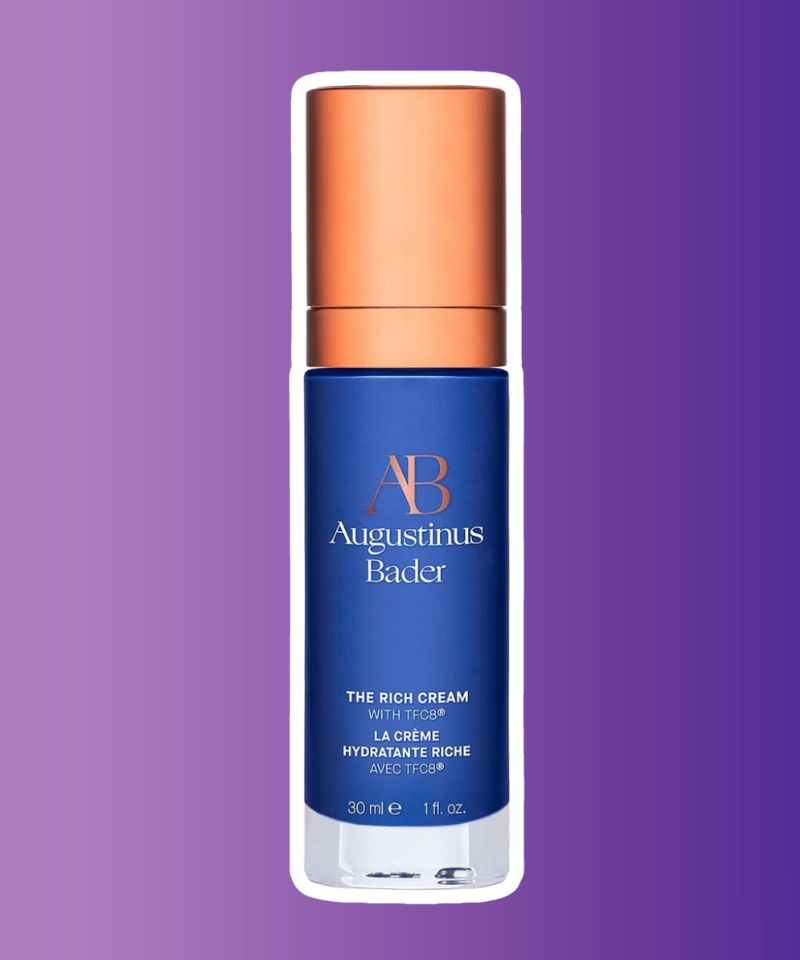
Best squalane moisturizer for aging skin.
Infused with squalane and glycerin, The Rich Cream by Augustinus Bader is a luxurious moisturizer that provides deep hydration and improves the skin’s natural barrier function.
The formula is further enriched with cell-communicating oligopeptides that work tirelessly to provide deep hydration and skin rejuvenation, while soothing elements like evening primrose oil and green tea leaf extract offer antioxidant protection and calming benefits to promote a balanced and revitalized complexion.
Finally, rich avocado and argan oil add an extra dose of nourishment and a softening effect, making this high-end moisturizer glide over the skin like a dream while leaving it smooth, supple, and visibly younger-looking.

My name is Simone and I am a certified skin specialist. I created this website to teach my readers how to take great care of their skin and I also like to occasionally share my honest opinions on skincare products I’ve tried. You can learn more about me here.
